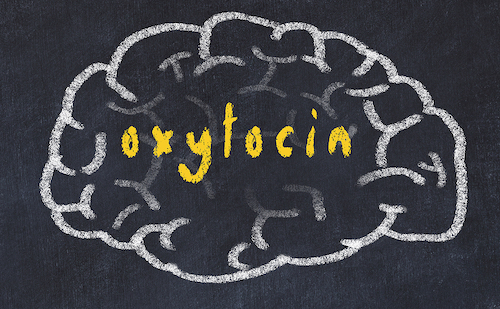November 29, 2023
by Elizabeth Pratt

Keeping secrets may actually brighten your day.
Research has found that keeping good news a secret makes people more alive and energized.
[More]
March 29, 2022
by Elizabeth Pratt

Stress in the United States is at an all time high, according to a poll conducted on behalf of the American Psychological Association (APA).
The poll showed that top sources of stress for people in the United States were an increase in prices due to inflation, issues with the supply chain, global uncertainty and Russia invading Ukraine.
[More]
March 5, 2021
by Tina Arnoldi

One-third of people working from home during COVID-19 are concerned about their mental health, according to the results of an Aetna survey with 4,000 people. Three-quarters of employees surveyed feel their decline in mental health impacted their productivity.
[More]
October 31, 2020
by Elizabeth Pratt

The “love hormone” oxytocin can occasionally have anti-social effects depending on where in the brain it is created.
Oxytocin, a hormone that can regulate prosocial behaviors like trust, bonding and empathy has also been demonstrated to play a role in anti-social behaviors like envy, anxiety and reduction in cooperation.
How the hormone could have such opposing roles has long remained a mystery, but researchers from UC Davis have uncovered how this might happen.
[More]
October 30, 2020
by Elizabeth Pratt

Americans are overwhelmed with multiple sources of stress.
According to the American Psychological Association (APA), the United States is facing a national mental health crisis that could have consequences well into the future.
[More]
January 11, 2019
by Elizabeth Pratt

Thinking about having a second child? It may be more difficult than baby number one. Recent research has found having a second child doubles time pressure for parents and contributes to the deterioration of parents' mental health.
[More]
November 8, 2018
by Elizabeth Pratt

People aged 15 to 21 are experiencing significantly higher levels of stress due to what they see in the news when compared with adults. Despite this, Gen Z is less likely to vote.
[More]
A new study in the June issue of Emotion found a connection between people with the short version of gene 5-HTTLPR and a more significant sense of humor. The study looked at 336 adults, showing them humorous comics and film clips, and rating the participants intensities of smiles or laughter. Those with the shorter alleles had more intense reactions of laughter or smiles and rated the comics or film clips as funnier than those with the longer alleles of the same gene. In past research, the 5-HTTLPR gene has been linked to regulating serotonin, a neurotransmitter that is thought to be related to mood fluctuations.
[More]
For most of us, meeting with misfortune and struggle is a part of life. In fact, surviving adversity is often viewed as beneficial and necessary. According to one Danish Proverb: “A gem cannot be polished without friction, nor man be perfected without trials.” When a person survives life’s difficulties and demonstrates the ability to withstand all of the stress that goes along with it, he or she is described as “resilient”. The Oxford Dictionary defines resilience as “The ability of a substance or object to spring back into shape.”
[More]
December 20, 2014
by Brenda Snyder, LCSW

Sometimes the very times that are SUPPOSED to make us the happiest evoke exactly the opposite. Anxiety and negative anticipation can virtually ruin your experience before it even gets here. As the leaves burn into their bright reds and golds, the taste of Fall’s fresh apple cider often turns to bitter vinegar in the stomachs of those who turn the calendar page and realize that the dreaded holiday season is soon upon us.
[More]